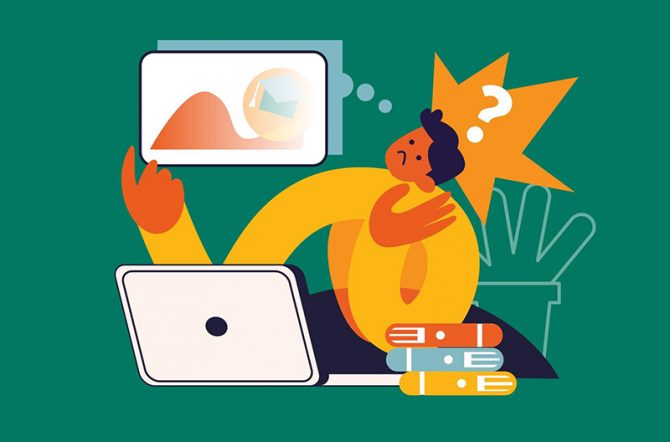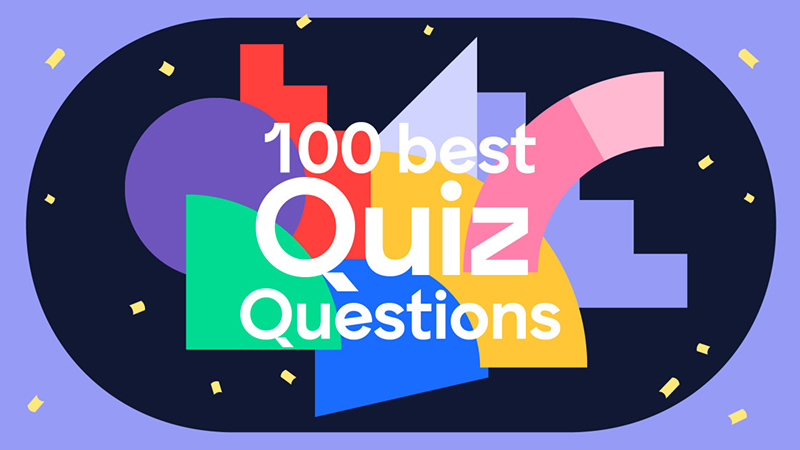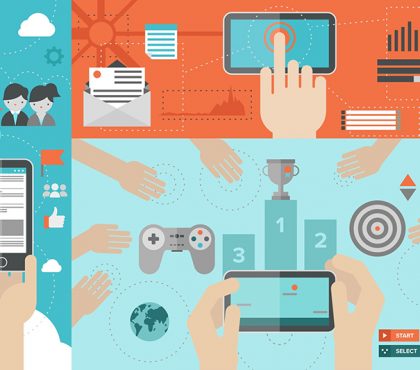Converting eLearning manuals to a game is a powerful way to boost learner engagement and retention in your training programs. By transforming traditional content into interactive, game-based experiences, you can make learning more enjoyable and effective.
Below is a 5-step-by-step guide to help you seamlessly convert your eLearning manuals into engaging games. Follow these steps to create a more interactive and impactful learning experience.
| Step | What To Do |
| 1 | Outline Your eLearning Manual |
| 2 | Choose Game Elements |
| 3 | Develop Interactive Content |
| 4 | Testing & Refine |
| 5 | Launch Your eLearning Gamification |
Table of Contents
Step 1: Outline Your eLearning Manual
Begin by structuring your eLearning manual, breaking down the content into clear sections or modules. Identify the key learning objectives for each part, ensuring the material flows logically. This outline will serve as the foundation for integrating game elements.
Step 2: Choose Game Elements
Next, select the game elements that best fit your content and objectives. Whether it’s quizzes, challenges, badges, or leaderboards, choose elements that will engage learners and enhance the learning experience. Ensure that these elements align with your outlined goals to reinforce the educational content effectively.
5 Types of eLearning Gamification
- A gamified quiz with badges to motivate: Use quizzes with badges or rewards to motivate learners, making the experience more engaging and goal-oriented.
- Scenario + game elements = Sales simulation: Create realistic sales simulations with game mechanics to help learners practice and improve their sales techniques in a risk-free environment.
- Product knowledge game-like quiz: Design quizzes that test product knowledge in a game-like format, making learning about products more interactive and enjoyable.
- Game-like quiz: General purpose: Utilize game-like quizzes for a wide range of topics, making learning more fun and accessible while reinforcing key concepts.
- Time-saving tailored retail training: Implement gamified training tailored to retail environments, focusing on quick, practical learning that fits into busy schedules.
Step 3: Develop Interactive Content
Design activities, simulations, and quizzes that bring the material to life, ensuring that they are both educational and enjoyable for learners. Utilize platforms to create engaging and interactive learning modules based on your outlined content and chosen game elements.
Here’s a comparison table of recommended platforms for converting eLearning manuals to a game, categorized by different business sizes and budgets.
| Platform | Best For | Key Features | Pricing | Ease of Use |
| Articulate 360 | Small to large businesses | Comprehensive eLearning suite, interactive templates, responsive design | Subscription-based, starts at $1,299/year | User-friendly, drag-and-drop interface |
| Adobe Captivate | Medium to large businesses | Advanced gamification tools, VR integration, responsive content creation | Subscription-based, starts at $33.99/month | Moderate learning curve |
| iSpring Suite | Small to medium businesses | PowerPoint-based authoring, interactive quizzes, simulations | Subscription-based, starts at $770/year | Simple, familiar interface |
| Elucidat | Medium to large businesses | Cloud-based, team collaboration, advanced analytics | Quote-based | Easy to use with collaborative features |
| Gomo Learning | Medium businesses | Cloud-based, responsive design, multi-language support | Quote-based | Intuitive, straightforward |
| Vyond | Small to medium businesses | Animated video creation, characters, and scene templates | Subscription-based, starts at $299/year | Easy to learn, intuitive design |
Creating your own content offers complete control and customization, allowing you to tailor every aspect to your specific needs. However, for a polished and high-impact result, collaborating with a professional studio can be highly advantageous.
Partnering with a studio like F.Learning Studio can significantly elevate your eLearning experience. We specialize in transforming educational materials into captivating, professional-quality games that effectively engage your audience.
F.Learning Studio combines expertise with technical skill to deliver top-notch eLearning solutions, and our services are cost-effective, often at rates 30% lower than US-based studios. Moreover, our streamlined process also reduces feedback loops, saving time and money while maximizing the overall efficiency of your project.
Step 4: Test and Refine
Congratulations on developing your interactive eLearning content! Before launching, it’s crucial to conduct thorough testing to ensure quality and effectiveness.
Testing Your Content
- Preview Thoroughly: Go through your interactive modules and game elements as if you were a learner. Check for any confusing parts, technical glitches, or issues with the game mechanics.
- Technical Check: Verify that all interactive features function correctly across various devices and screen sizes. Ensure that any links, buttons, or multimedia elements work as intended.
Refining Your Content
- Gather Feedback: Share your gamified content with a small group of colleagues or a test audience. Collect honest feedback on the clarity, engagement, and overall learning experience.
- Iterate Based on Feedback: Use the feedback to make improvements. Address any issues identified, tweak game elements for better engagement, and adjust content to enhance learning outcomes. This step is about fine-tuning your content to ensure it delivers a seamless and effective learning experience.
Step 5: Launch Your eLearning Gamification
You’re all set! Your gamified eLearning content is ready to be shared. Now it’s time to make it available to your learners and maximize its impact.
Choose Your Platform
- Learning Management Systems (LMS): For internal use, upload your gamified content to an LMS like Moodle or Blackboard. This allows you to integrate the gamification elements into your existing learning programs.
- Video Hosting Sites: If you aim for a broader audience, consider platforms like YouTube or Vimeo. These sites offer tools for tracking engagement and performance.
- Your Own Website: Hosting the content on your website can drive traffic and offer a controlled environment, ensuring that your gamified modules are easily accessible.
Optimize for Search and Accessibility
- Search Optimization: Use clear titles, descriptions, and relevant keywords to enhance discoverability. Ensure your content is mobile-friendly for on-the-go learning.
- Accessibility: Provide captions and transcriptions to accommodate all learners. Make sure your content is accessible on various devices, improving inclusivity.
Promote Your Gamified Content
- Embed in Courses: Integrate the gamified modules into your online courses to provide context and enhance learning engagement.
- Share on Social Media: Distribute links or snippets of your content on social media platforms to broaden its reach and encourage interaction.
- Email Distribution: Include links to the gamified content in your email communications to ensure it reaches your target audience directly.
Ensure Content Security and Compliance
Use secure platforms to protect your intellectual property and restrict unauthorized access. Ensure that your content adheres to industry regulations and accessibility standards.
Monitor and Analyze Performance
Use analytics tools to monitor how learners interact with your gamified content. Track metrics like completion rates, engagement levels, and feedback to refine and improve your modules over time.
Top 6 Tips for eLearning Gamification
Gamification can significantly boost engagement and retention in eLearning by making the content more interactive and enjoyable. Discover the top 6 tips for incorporating gamification into your eLearning programs to create a more engaging and effective learning experience.
- Start small but don’t cut corners: Begin with simple game mechanics to avoid overwhelming learners, but ensure these elements are well-crafted and purposeful. Even small features should be engaging and contribute to the overall learning experience.
- Prioritize the learning, not the game: The primary goal is education, so make sure the game enhances learning rather than distracting from it. The game should serve as a tool that reinforces the subject matter, not just as entertainment.
- Be clear on criteria and progression: Clearly define how learners can progress through the game, with transparent rules, goals, and rewards. This clarity helps learners stay motivated and aware of their achievements as they advance.
- Ramp up the challenge gradually: Introduce challenges progressively to maintain interest without causing frustration. Start with easier tasks and gradually increase the difficulty, allowing learners to build confidence and skills along the way.
- Don’t disregard individual competition: Encourage personal achievements by allowing learners to track their own progress and compete against themselves. This internal competition can boost motivation and foster a sense of accomplishment.
- Facilitate continuous learning: Design the game to promote ongoing education, incorporating elements that encourage learners to keep engaging with the material even after the initial lessons. This ensures long-term retention and application of knowledge.
Conclusion
Converting eLearning manuals to a game creates rich opportunities to enhance your learners’ experience, making education more interactive and impactful. By integrating game elements into your course, learners can engage more deeply with the material, leading to better retention and improved performance.
If you’re looking to develop your eLearning content, F.Learning Studio is here to help. We specialize in converting your eLearning manuals into engaging, gamified experiences that boost learner engagement and outcomes. Please don’t hesitate to contact us now so we can offer what works best for your project.
- WhatsApp: (+84) 378 713 132
- Email: [email protected]
- Fanpage: https://www.facebook.com/f.learningstudio
- LinkedIn: https://www.linkedin.com/company/f-learning-studio/

Sean Bui, the founder and creative director of F.Learning Studio, is a respected leader in the e-learning and multimedia production industry. With over 10 years of experience, he has dedicated his career to helping organizations create engaging and impactful learning experiences.
Under his leadership, F.Learning Studio has grown into a trusted partner for organizations in the education, healthcare, and corporate training sectors, producing over 2,000 minutes of educational animation.











